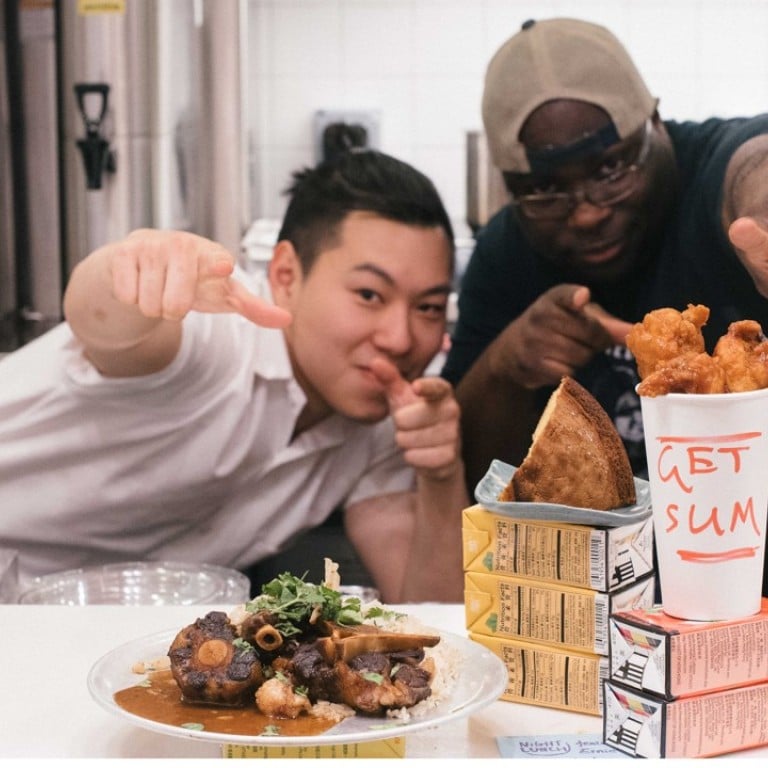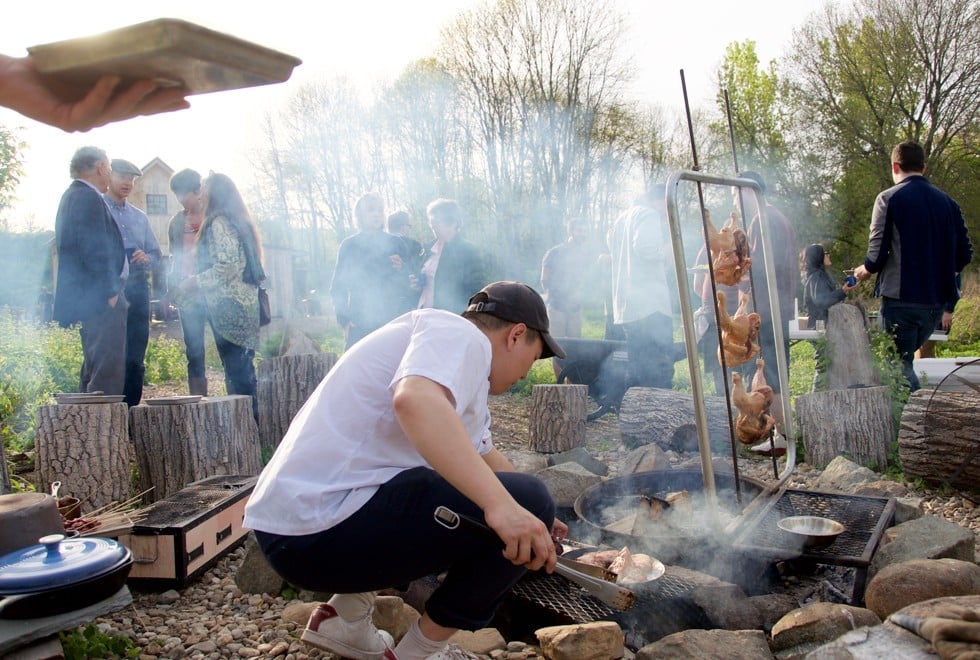
Hong Kong-born chef brings Chinese cuisine to US shores
Lucas Sin is bringing the taste and smell of home to the US east coast, with the ultimate aim of “translating” contemporary Chinese food into American dining culture
The brightly lit restaurant is decorated with Asian memorabilia: an array of Vita drink boxes, a massive white rabbit candy and even a Chinese International School (CIS) flag – homage to the 23-year-old’s origins.
Hong Kong-born chef Lucas Sin is bringing the taste and smell of home to the US east coast, with the ultimate aim of “translating” contemporary Chinese food into American dining culture.
“I had a nomadic, autodidactic way of teaching myself how to cook,” Sin said.
“I experimented in Hong Kong, and I backpacked and hitchhiked around Japan, knocking on people’s doors and asking if I could live and cook with them,” he said.
New Haven, Connecticut is home to both Sin’s alma mater, Yale University, and Chinese restaurant Junzi Kitchen. He is also involved in another establishment in New York City.
“My food journey began when I was in high school at CIS – I was 16 and taking myself too seriously,” Sin said.
“In the summer before year 13, we opened a private kitchen in the old Ming Pao factory in Chai Wan. We called [the place] ‘Bo Zai’. We used a friend’s wine cellar to make food.”
A post shared by junzi kitchen (@junzikitchen) on Jun 21, 2017 at 6:13am PDT
At Bo Zai that summer, Sin did 13 courses three times a week. Popularity increased by word of mouth, leading the teenage chef to open a for-hire private kitchen.
“One curious and lovely thing I’ve found about Hong Kong cuisine is that there are so many tiny businesses that make four outstanding things,” Sin said.
“It’s this highly specific and very specialised way of doing things that necessitates craft – you have to be really good at your one thing and understand very intimately the culture of that food.”
“Food in Hong Kong is unlike the centralised system of dining in America,” Sin added.
“The fish ball place in Chai Wan and the fish ball place in Kowloon Tong will be completely separate, but have a shared understanding and mutual heritage. The makers understand the recipe they use and the culture they follow, both of which have been passed down through generations. It’s this invisible shared network for the intellectual property of food.
While at Yale, Sin cooked at nine different student-run restaurants, serving his offerings to 150 customers a week.
The eateries included a pop-up restaurant, a bakery cafe and an “essentially illegal” underground gastropub. It was during Sin’s third year at university that he joined the Junzi Kitchen team as their chef.
When not exploring the country for new innovative dishes, Sin will be found behind the counter at Junzi, guiding his employees and chatting to customers.
“To me, Junzi is partially about displaying an under-represented Chinese cuisine and celebrating how colourful and diverse Chinese food is,” Sin said.
At Junzi, customers choose from a range of ingredients, including Chinese vegetables, tofu, braised meats and sauces, pointing to what they want to add to their traditionally northern Chinese noodle base – a concept dubbed “Northern Chinese fast-casual dining.”
From being called “rice bucket” by his father as a boy to cooking in small Japanese kitchens, basement Hong Kong restaurants and finally US eateries, Sin has brought the cuisine that raised him in his journey through life.
“Hong Kong is always going to be the one place in the world that is dear to me and will always be home to me. Because of Junzi Kitchen, the mission for me now is to affect things in the US, but I’ve always loved to cook at home.”


